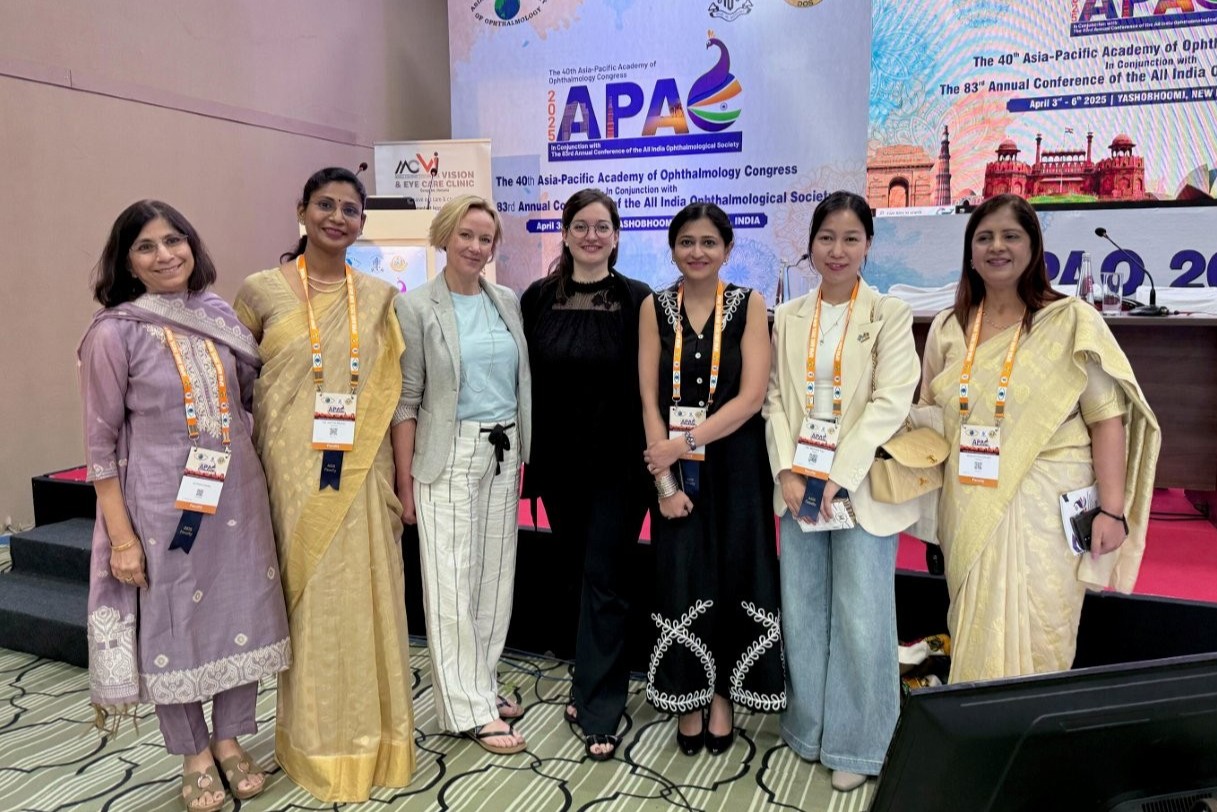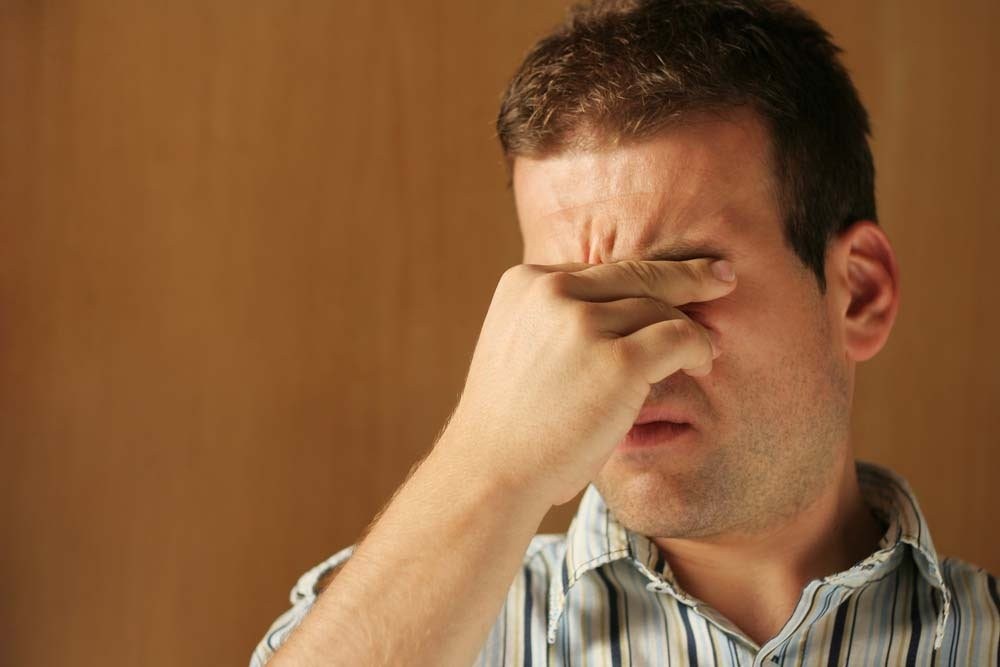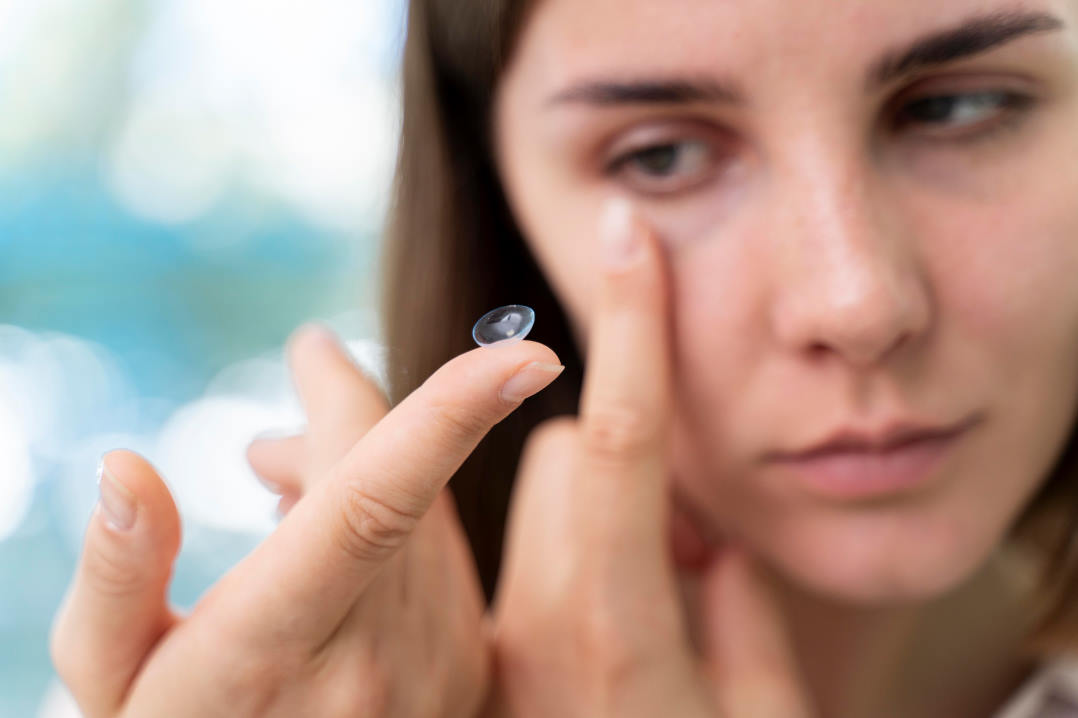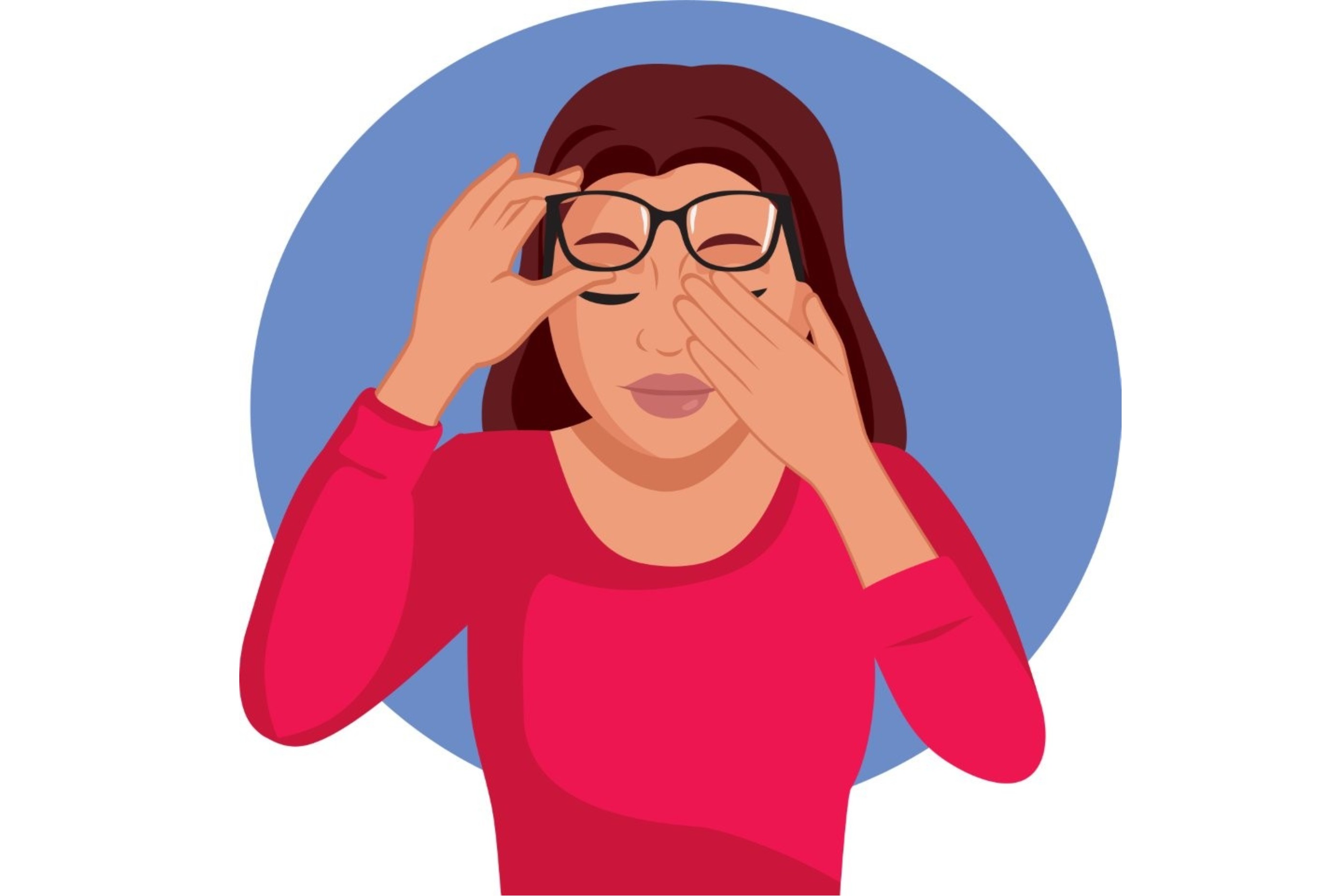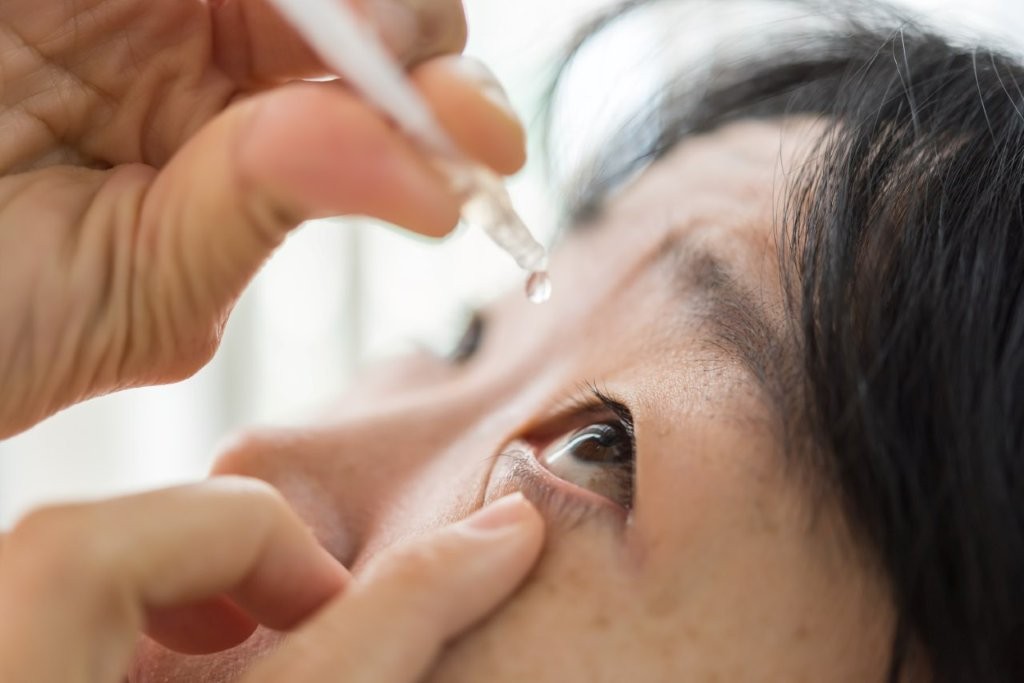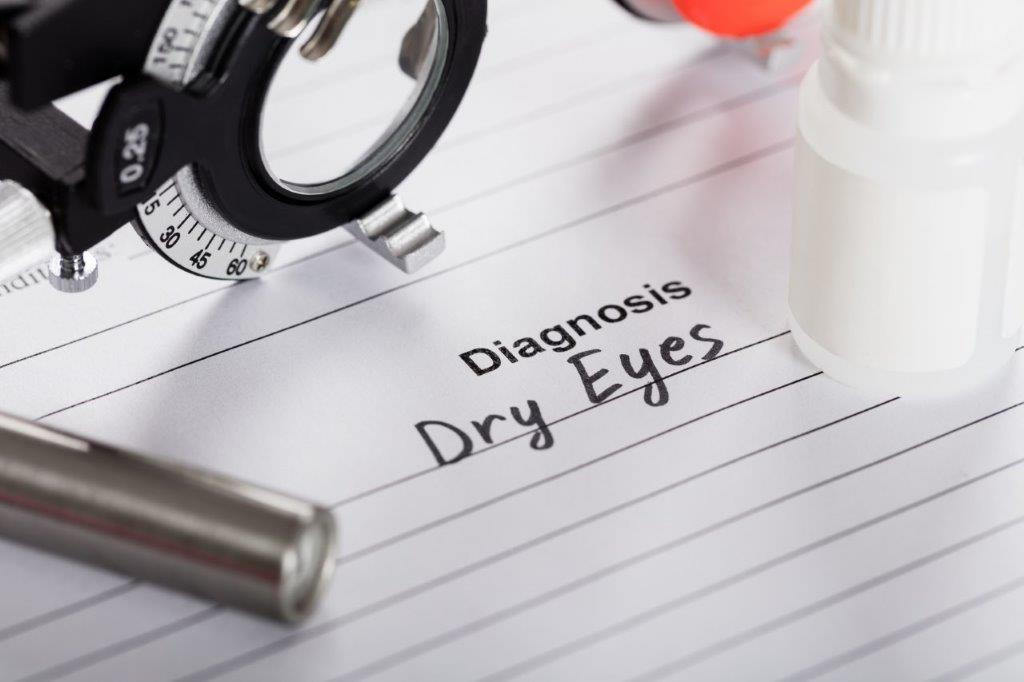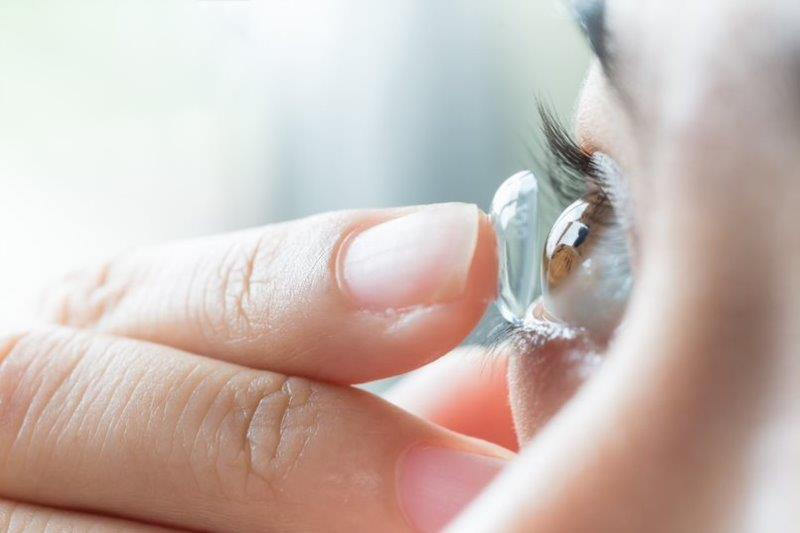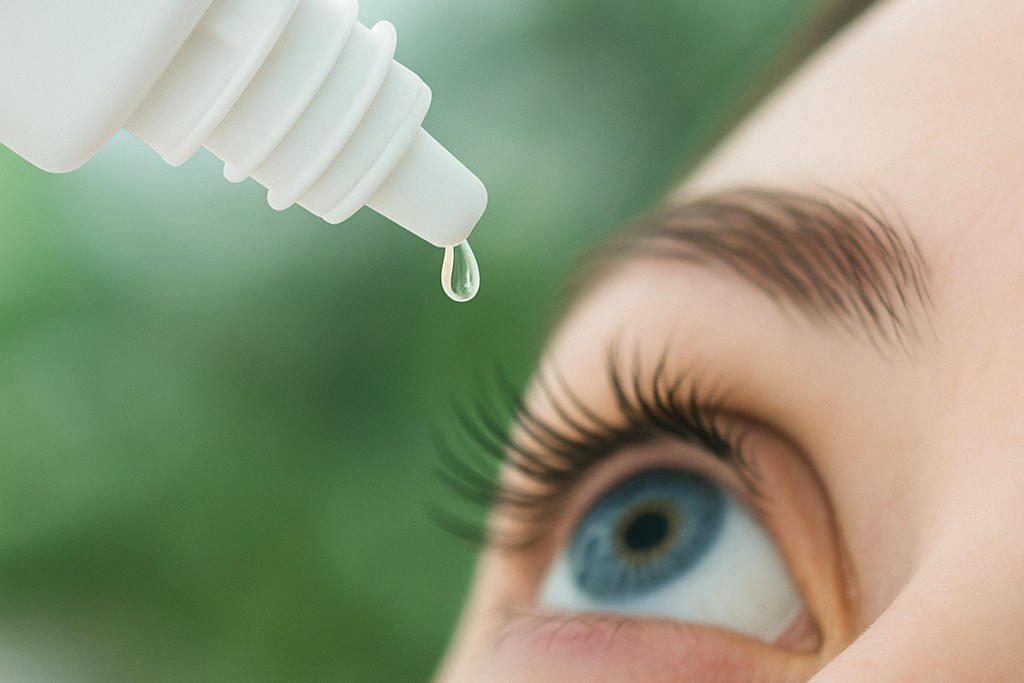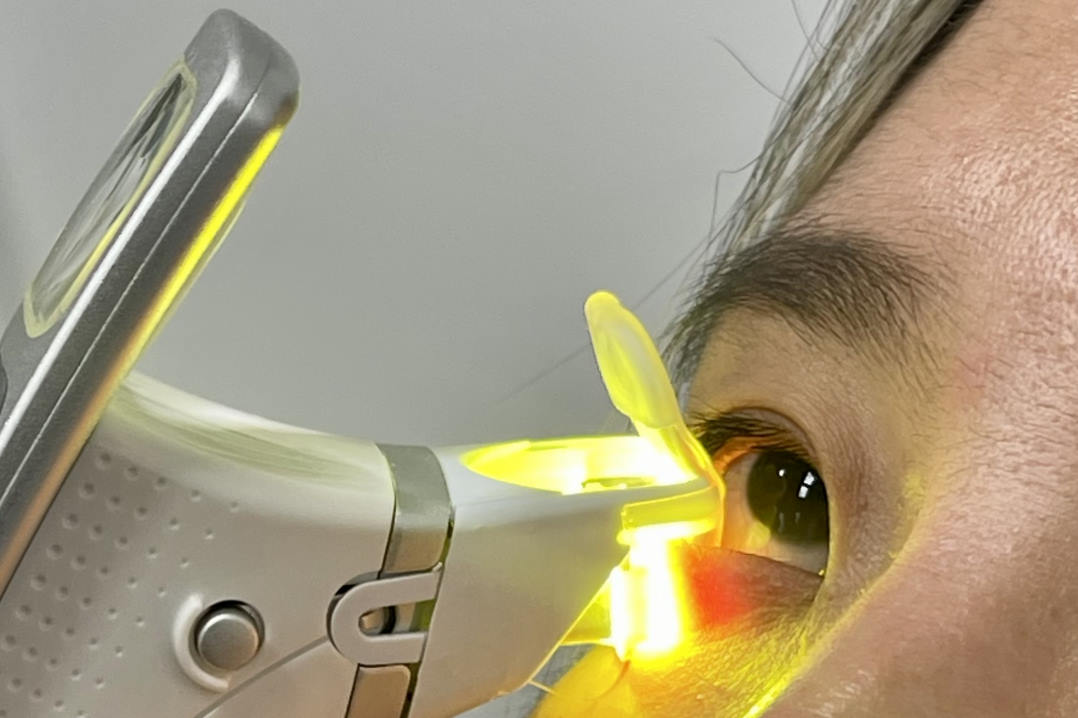Sharing dry eye knowledge in India
Ensuring evidence-based best practice reaches patients, both locally and globally, is at the heart of what we do as clinical educators. At the 2024 Tear Film & Ocular Surface Society (TFOS) conference in Venice, a chance meeting between then BCLA president Sarah Farrant, Indian ophthalmologist Associate Professor Anitha Arvind and Professor Monica Chaudhry, co-host and founder of Learn Beyond Vision (LBV), sparked a shared vision: to expand access to practical, evidence-based education for eyecare professionals (ECPs) in India. Recognising the growing burden of dry eye disease (DED), the collaboration aimed to bridge gaps in clinical training through workshops grounded in global research.
DED is a rising concern in India, driven by environmental conditions, digital screen use and lifestyle changes. Although research in this field has progressed significantly, translating it into everyday practice remains limited, particularly where continuing education is less accessible. To address this, the British Contact Lens Association (BCLA) and LBV joined forces to deliver a hands-on workshop focused on DED, contact lenses and ocular surface health.
The initiative offered a comprehensive curriculum that heavily referenced the TFOS DEWS II, TFOS Lifestyle and BCLA CLEAR reports. These reports provide an up-to-date, science-backed framework for understanding and managing DED in clinical settings, as well as providing best-practice guidance for contact lens wear in patients with and without ocular surface disease.
Held in April 2025, as part of the 40th Asia-Pacific Academy of Ophthalmology Congress and the 83rd All India Ophthalmology Society Conference, the full-day workshop attracted optometrists and ophthalmologists from across India and beyond. Participants rotated through hands-on stations covering slit-lamp skills, meibomian gland expression and debridement, photobiomodulation, intense pulsed light (IPL) treatment, lid hygiene – using the BlephEx device and the Zocular Eyelid System Treatment (ZEST) – plus amniotic membrane handling. Support from industry partners, including Topcon, Optitech, Espansione, Scope, The Body Doctor, Akriti Ophthalmic, Bausch + Lomb and V Square, ensured access to the necessary equipment and tools.
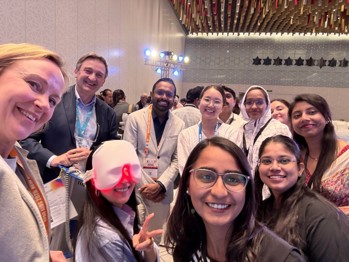
BCLA immediate past president Sarah Farrant (on left) with fellow conference attendees checking out LLLT
A central theme was the integration of global evidence into real-world care. Dr Sònia Travé-Huarte, research academic at Aston University and co-host, underscored the significance of TFOS DEWS II, which recognises the inflammatory overlay in DED stemming from tear-film instability. She also spotlighted the newer TFOS Lifestyle Report, linking behaviours, such as digital device use, poor diet and pollution to DED. Understanding these links is vital for comprehensive care.
The BCLA CLEAR reports were also noted to be equally pivotal, offering strategies for managing contact-lens-related DED and fitting lenses in patients with compromised ocular surfaces. Hands-on training builds practitioners’ clinical confidence, allowing them to apply theory more effectively. A/Prof Arvind emphasised the importance of the hands-on approach: “Reading about a diagnostic tool is different from actually using it. We wanted participants to leave with not just theoretical knowledge but practical confidence.”
The workshop also acknowledged India’s rich history of ocular care. Ayurvedic texts like the Sushruta Samhita describe ‘shushkakshipaka’, a condition akin to dry eye, recommending traditional remedies, such as triphala eyewash – made from a blend of three Indian fruits – and clarified butter. This perspective reminded attendees that modern and traditional knowledge can co-exist in patient care.
The curriculum, designed by Dr Travé-Huarte, Sarah Farrant and Associate Professor Stuti Misra, from the University of Auckland, was divided into five key modules:
- Understanding DED – including epidemiology, TFOS DEWS II definitions and inflammatory mechanisms
- Diagnosis – using diagnostic tools, such as meibography and non-invasive tear breakup time (NITBUT)
- Treatment – covering both pharmaceutical and non-pharmaceutical strategies, including IPL, lid hygiene and lifestyle modification
- Contact lens management – fitting lenses in patients with DED, including scleral and therapeutic lenses
- Patient education – emphasising compliance, communication and the role of sleep, hydration and diet.
Feedback was overwhelmingly positive. Anjali Ahuja, a professional services executive from Menicon India, described the event as “insightful and thoughtfully curated”. Vietnamese BCLA fellow Minh Anh Tran said she found the focus on lifestyle especially useful, gaining new tools to educate patients on modifiable behaviours affecting dry eye symptoms.
A defining moment of workshop success was its outreach component, connecting clinicians across India and neighbouring countries with internationally recognised educators and best-practice resources. The BCLA’s aim is for this model to serve as a template for future initiatives in other underserved regions.
Looking ahead, BCLA and LBV plan to expand their collaboration through virtual case discussions and advanced training, sustaining momentum beyond the initial workshop. Professor Monica Chaudhry, retired Delhi optometrist and founder of the Monica Chaudry Vision and Eyecare Clinic, “This was more than just a training – it was about building a community committed to improving dry eye care.”
As DED continues to affect visual comfort and contact lens wear worldwide, initiatives like this play a crucial role in raising care standards. By focusing on practical learning, outreach and evidence-based approaches, more clinicians are empowered to deliver better outcomes for patients with this chronic and often overlooked condition.

Dr Ally Xue is a therapeutic optometrist and postdoctoral research fellow at the OSL, with a special interest in light-based therapies for dry eye.

Sarah Farrant is an independent prescribing optometrist, dry eye specialist, global industry consultant and lecturer. She is a former president of the BCLA, a TFOS UK ambassador and serves as a TFOS public awareness subcommittee member. She is owner of Earlam and Christopher Optometrists.









